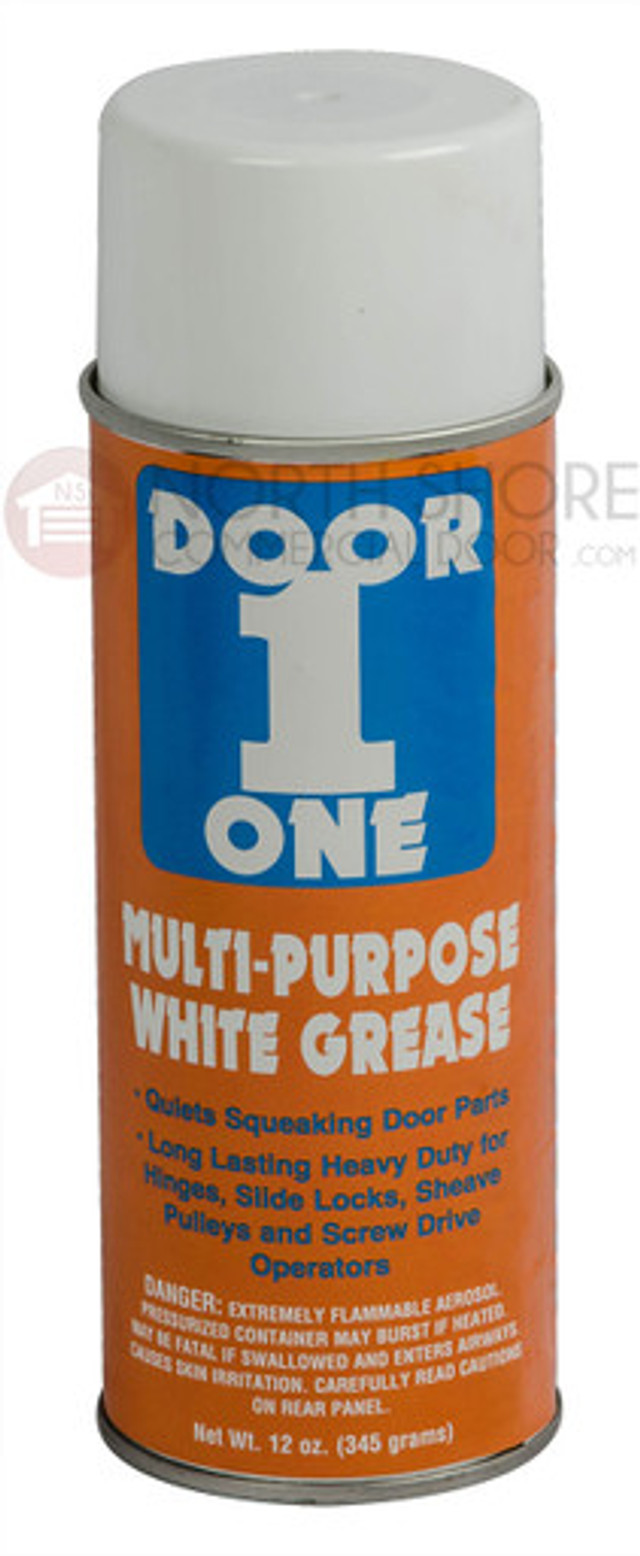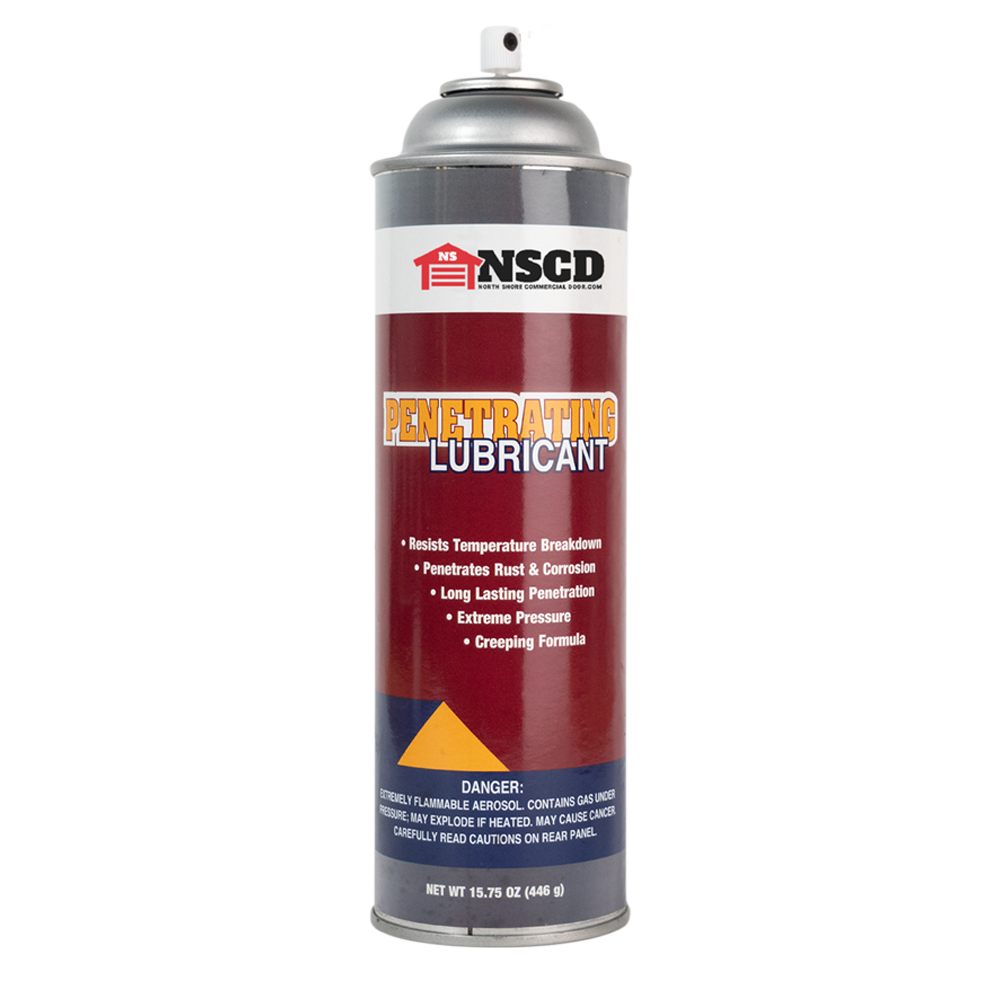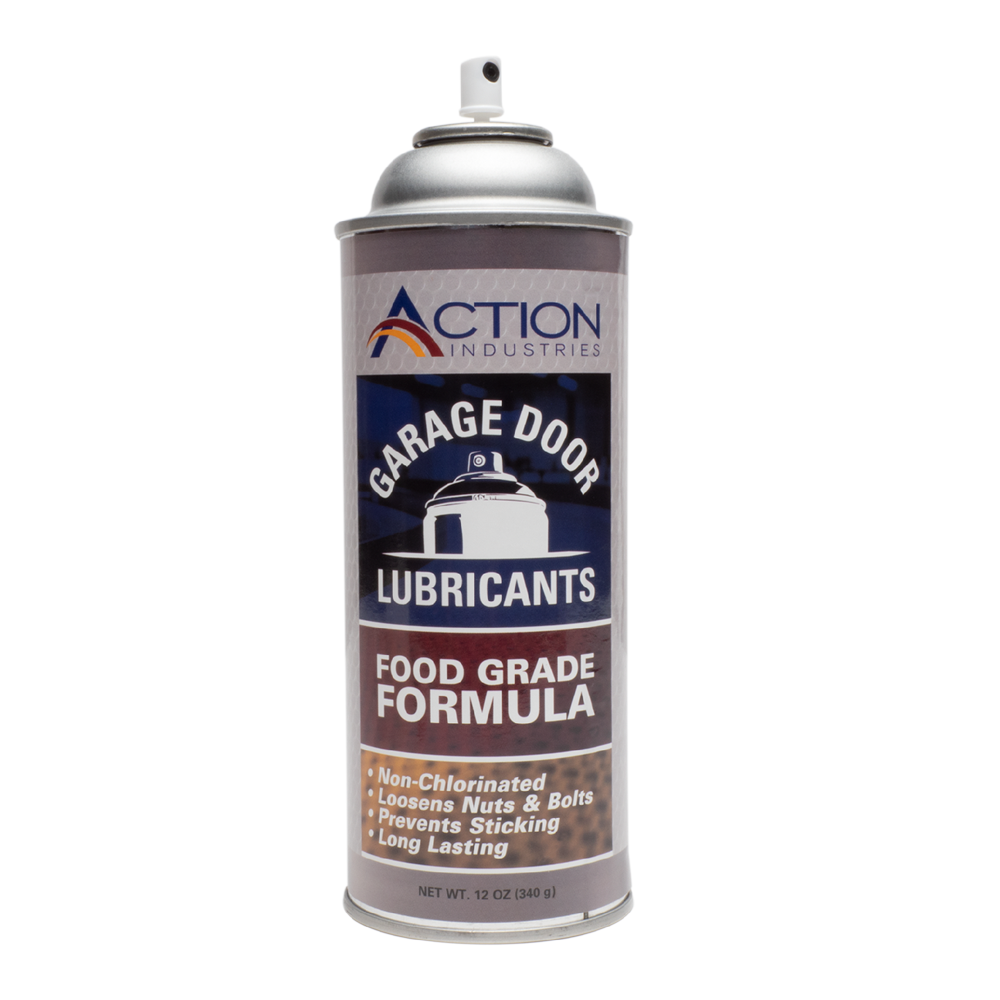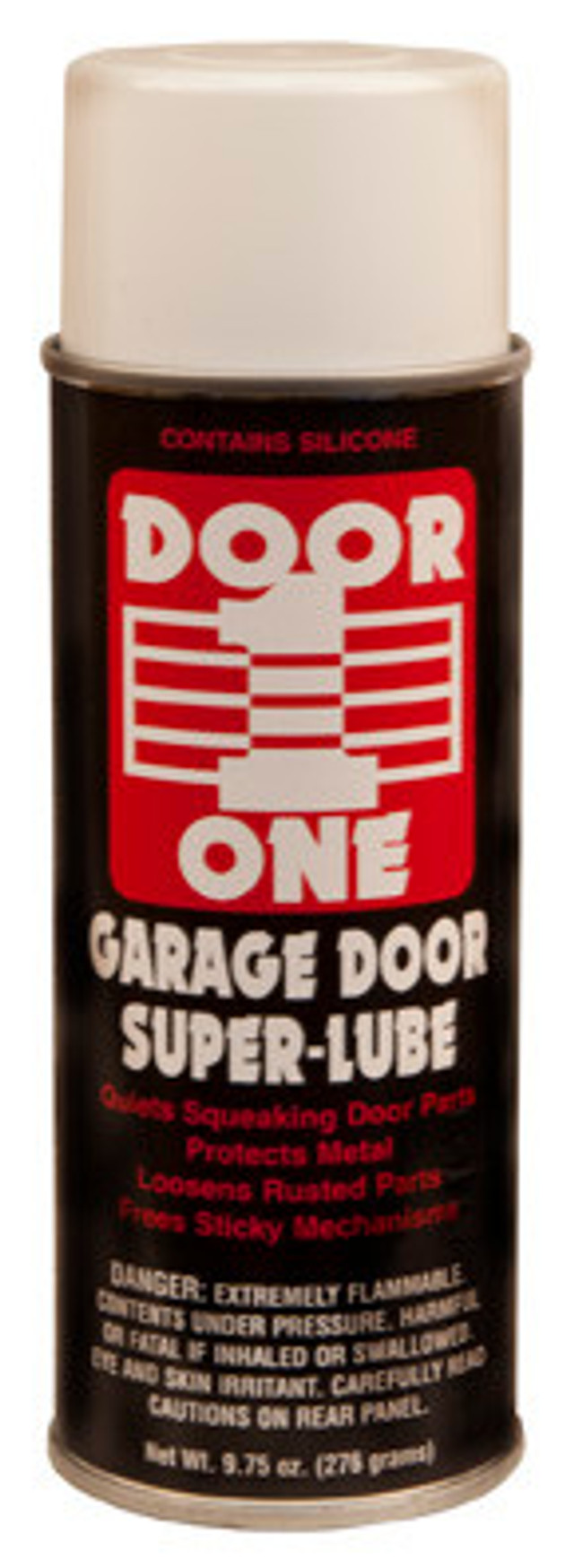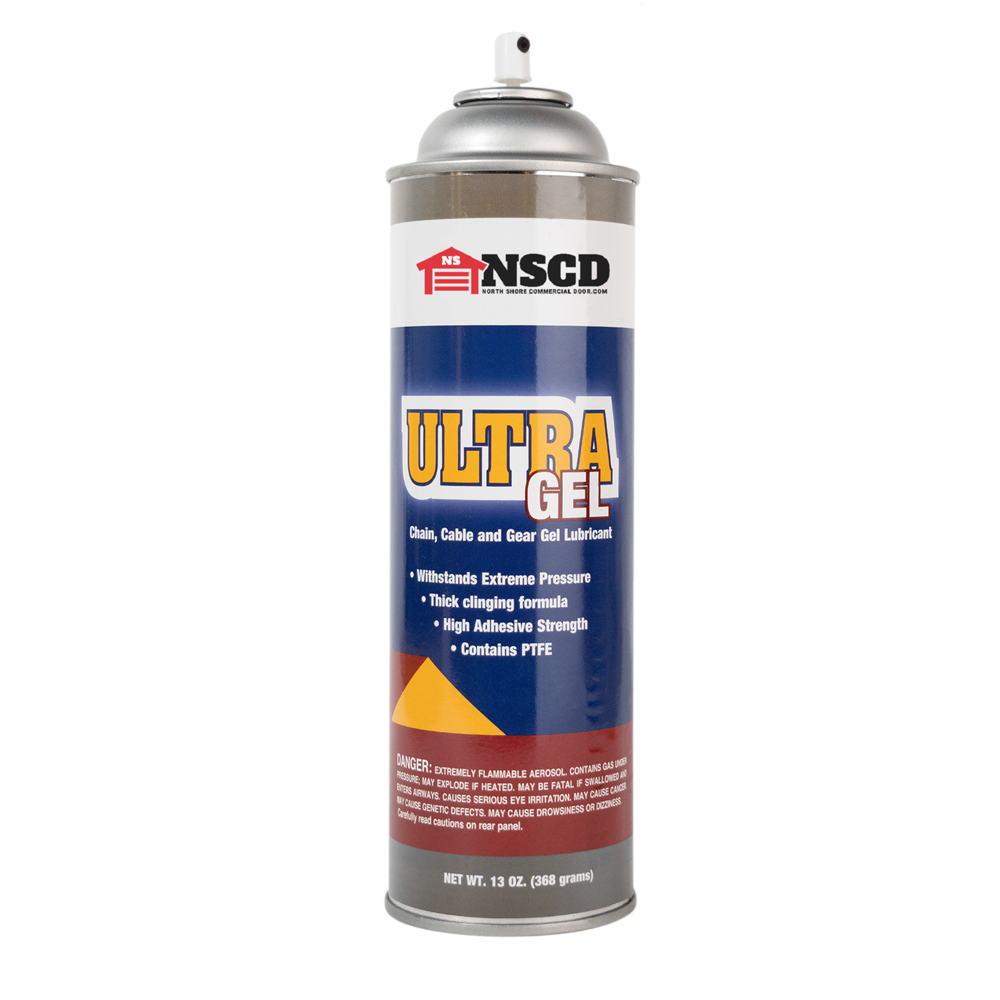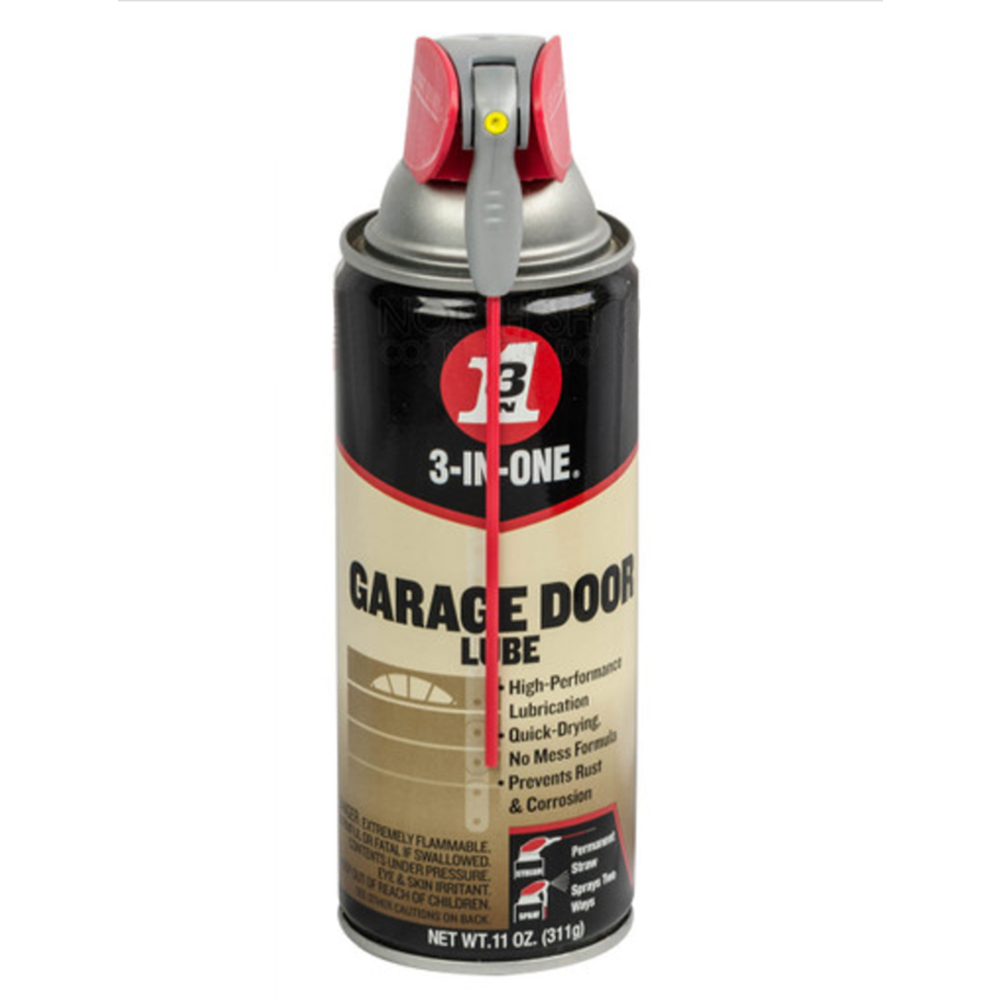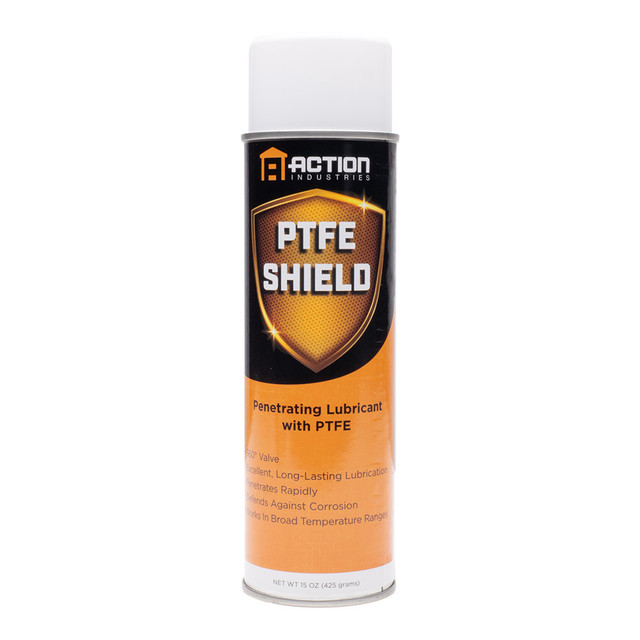Garage Door Parts Lubricant Guide
Posted by Charlene Pepiot on 30th Aug 2023
Using Lubricant to Protect Your Garage Door!
A garage door is operated by many moving parts, and when the system is not maintained it can fail. For those who don’t want their door to fail and trap their car in the garage right before little Susie’s dance recital, you can take preventative measures by applying lubricant to your garage door system. Lubricants reduce the friction between the moving parts that grind against each other every time you operate your door, which helps to keep your system moving smoothly to prevent squeaking, overheating, rust corrosion and other damaging effects that will cause a door’s premature failure. Read on to learn the best garage door lubricant for you, how often to apply it, and more from our knowledgeable staff.
What Kind of Lubricant Should I Use?
To lubricate a garage door, it's important to use the right type of lubricant, which is lithium-based grease or a specially designed garage door grease (and not oil or standard degreasers such as WD-40). This grease is usually available in a garage door lubricant spray or aerosol can. You can find garage door lube that minimizes friction on metal components, in addition to preventing squeaking and corrosion. Lithium grease is especially good at adhering to metal. It's non-corrosive, supports heavy loads and is tolerant to variations in temperature.
We carry a multitude of name brand and custom lubricants that can suit your needs, be it needing a lubricant that holds up in extreme cold or coming in a can versus a stick. See below:
Best Lubricant for Garage Door Opener Systems:
White Lithium Grease Garage Door Gate and Operator lubricantLithium based garage door lubricants are a great option to protect your garage opener system and White Lithium Grease comes in an easy-to-use aerosol can. This P.T.F.E. fortified, durable, nonstaining lubricant provides superior friction reduction and will not run, wash off, or freeze. The RS-1000 is a professional grade product for use on all moving parts found on residential, commercial and industrial garage doors, gates and electrical operators such as rollers, hinges, bearings, springs, cables, roller chain, locks, latches, etc. |
|
Penetrating Lubricant, 15.75ozPenetrating Lubricant is made to infiltrate rust and corrosion on neglected applications that have gone years without lubrication. Its efficacy lies in the lubricant's "creeping" nature, effortlessly seeping between components to facilitate the swift loosening of parts. |
|
Multipurpose Foaming FG Lubricant, 16oz AerosolMultipurpose Foaming FG is a USDA-rated H1lubricant that can be safely used on food processing equipment, making it perfect for commercial applications where food processing is involved. This robust lubricant’s foaming action minimizes runoff which optimizes lubrication and protection. Additionally, it effortlessly penetrates and loosens rusted bolts while safeguarding all metal finishes against corrosion. |
|
ActionSil PRO, Silicone Lubricant, 9.75ozThe ActionSil PRO is a clear lubricant and preservative designed to leave a slick, continuous film for versatile use on garage door opener systems and other applications. It penetrates the surface pores of synthetic plastics, rubber, neoprene, wood, fabrics, and more. |
|
GetSome 1000 Garage Door All-In-One Lubricant, 11 ozThe GetSome All-In-One Lubricant is a premium lubricant that is non-static, non-toxic, non-staining, and non-conductive, making it safe for use on various surfaces without leaving residue. It resists drying, gumming, and gooey buildup, and is free from halogens, carcinogens, and residual petroleum odors, which ensures a clean and safe application on plastics, metals, points, enamels, and fiber glass. It is ideal for professional, commercial, industrial, and household applications. |
|
Creeping Formula Penetrating Lubricant,15 ozThe Creeping Formula Penetrating Lubricant is a premium industrial solution engineered to penetrate rust, corrosion, and debris to effortlessly loosen stubborn, rusted, or frozen nuts, bolts, screws, and other garage door components. Its foaming action minimizes runoff, keeping the product in contact with the problem areas longer. The special blend of oily lubricants helps free nuts from threads, while added ingredients boost its resistance to extreme pressure, wear, and friction. |
|
AERO LUBE Lithium Based Low Temperature GREASEAero Lithium Based lubricant is compatible with garage door components and provides low-torque start-up capability, excellent corrosion and oxidation resistance and wide compatibility with metals, plastic, and rubber. |
|
Garage Door Pro SL (Tribolube) - Anti Rust LubricantOur Garage Door Pro SL prevents rust, corrosion and wear in extreme environments. It's ideal for springs, lock assemblies, rollers and latches and comes in a 9oz can. |
|
Garage Door One Super Lube,9.75 ozOne Super Lube is a garage door lubricant with silicone in a convenient spray can that targets squeaking door parts and loosens rusted parts. |
|
Garage Door Foamy Lube, 13ozFoamy Lube works well on frozen rollers, hinges and pulleys on garage opener systems. It contains no silicone. |
|
SchaeffersPenetro 90 Garage Door LubeThe SchaeffersPenetro 90 Garage Door Lube is a high-performance penetrating oil that lubricates and busts rust on garage door openers. |
|
Genie 20010A.S Garage Door Opener Low Temp Screwdriver Lubricant 10ozIf you have trouble removing screws or repairing other parts of a garage door during cold winter weather, this Low Temperature Screwdriver Lubricate20010A.S Grease product functions as a general, multi-purpose lubricant in frigid weather. |
|
13 oz Ultra gel with PTFEUltra Gel Lubricant is a high-strength, heavy-duty penetrating lubricant designed for the hardest to reach areas on your garage door. The patented lube lasts longer than conventional lubricants and works hard to keep your garage rust and corrosion free. It won’t wash out from water and can be used on every garage door component in a system from hinges and chains, to gears and brackets. Capable of functioning in temperatures ranging from -30ºF to over 600ºF, this clear gel will protect any garage door set up in the harshest of conditions! |
|
Beyond Garage:
We offer lubricants that are targeted at applications beyond garage door opener systems too. Be it automobiles, boats, farm equipment, and other applications, we have you covered!
ZincGuard, White Lithium Grease,13 ozZincGuard White Lithium Grease is a versatile lithium lubricant with fine micron zinc oxide particles and a high-viscosity oil that increases its lubricating properties and corrosion resistance. Itis water resistant and has a quick-drying formula. ZincGuard sprays on as a liquid and rapidly cures into a thick grease. Ideal for automotive hinges and springs, industrial machinery and tools, marine linkages and cables, and farm equipment. |
|
Gate and Garage Door 3-IN-ONE LUBEThe 3-In-One garage door lubricant is a synthetic polymer lubricant that provides superior, long-lasting lubrication and corrosion protection for gates along with garage door opener systems. It leaves no oily residue, preventing the buildup of dirt and rust and works on all types of surfaces. |
|
PTFE SHIELD, Penetrating Lubricant with PTFE,15 ozThe PTFE SHIELD is a high-tech formulation of specialized oils blended with micron-sized PTFE that provides long lasting lubrication and works in extreme temperatures (-55°F to 475°F). It provides superior corrosion protection for all metal surfaces and is ideal for use on vehicles, industrial machines, motors, shop equipment, large machinery, nuts and bolts, hinges, roller bearings, conveyors or pulleys, electric motors, gears, and other sliding or turning parts. |
|
3-In-One Lock Dry LubeOur 3-In-One Lock Dry Lube lets you loosen and lubricate residential and commercial locks and weatherstripping. This lubricant comes in 2.5-ounce aerosol cans and can be sprayed or inserted into narrow lock mechanisms with an included straw. It won't attract dirt, and this Lock Dry Lube helps moving parts resist rust and corrosion. It's safe for metal, wood and most plastic surfaces. In addition to garage doors and locks, this canned lubricant is also great for automotive and boating uses. |
|
Slick It Garage Door and Weather Seal Lubricant, 2.5 ozThe Slick It lubricant comes in a 2.5 oz container that is similar to a deodorant stick for easy application on the bottom weather seal attached to your door. When used in the wintertime, the American-made, all-natural lubricant prevents bottom seals from freezing to the ground. You can also apply Slick It to the jamb seal on painted garage doors to stop the seal from getting stuck. | 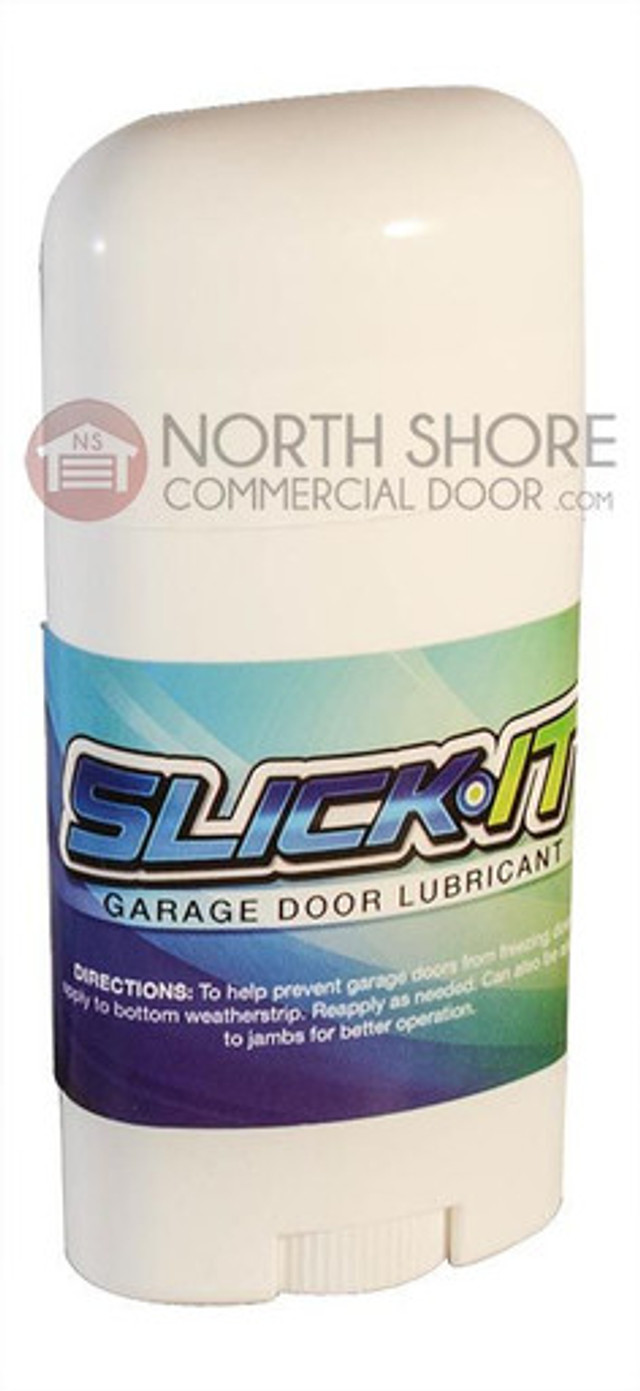 |
How Do I Lubricate My Garage Door?
You should regularly lubricate the various moving parts on a garage door opener system with a lithium-based grease or specially formulated garage door lubricant. Lubricate the hinges, rollers, any exposed ball bearings, the outsides of springs and bearing plates, lock and armbar, and the top of the rail. DO NOT lubricate nylon rollers. Before you begin lubricating, close the garage door, disconnect the power, vacuum out dust and dirt from the tracks and clean them with a damp rag.
How Often Should I Lubricate?
Lubricate all your garage door's moving parts at least once every six months and pay special attention during cold months. For heavy-duty garage doors used continuously, consider lubricating the system’s parts at least every three months.
Need more help with your question?
Please ask! Talk to our in-house expert and they will make sure you have what you need.
- Live chat: Click the "Contact Us" button
- Call: 800-783-6112
- Email: support@northshorecommercialdoor.com

